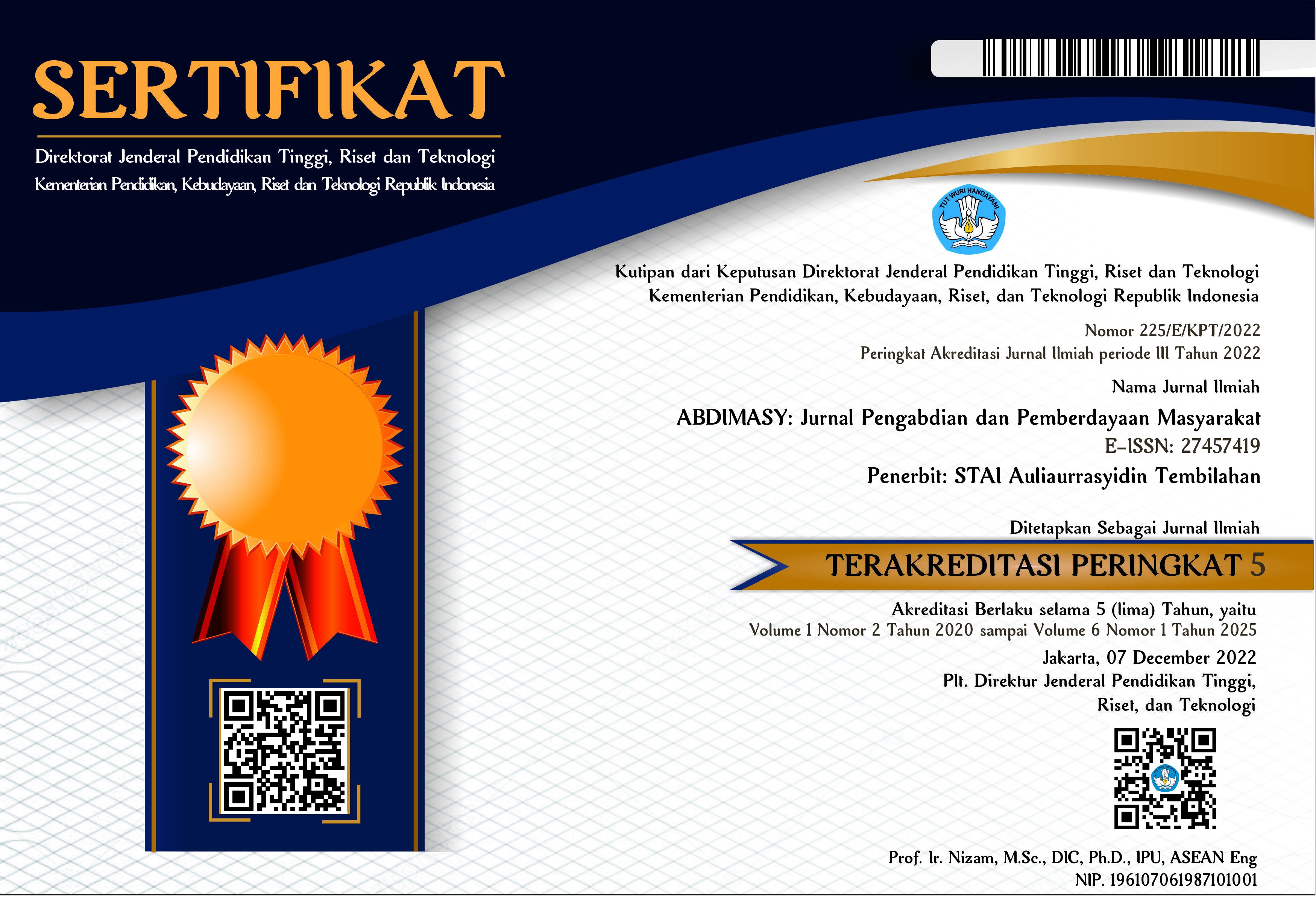Pelatihan Membaca Puisi Sesuai dengan Kaidah Bahasa Indonesia bagi Siswa Madrasah
DOI:
https://doi.org/10.46963/ams.v2i1.321Keywords:
Reading Poetry, Pronounciation, Intonation, ExpressionAbstract
Reading poetry is one of the language skills, the skills are reading poetry in public with correct pronunciation, beautiful intonation, and correct expression. However, especially students at MI Nurul Huda Sungai Binjai, Keritang District did not read poetry by applying the conditions or rules for reading poetry. For instance: not reading poetry with the correct pronunciation, not using beautiful intonation, also not expressing the poetry properly. Thus, the training was given to students to read poetry properly. The method used in this service is the training method. The result of this training indicated that students able to read poetry with correct pronunciation, beautiful intonation, and they can read poetry with correct expressions.
Downloads
References
Al-Mubary, D. (2002). Seni Sastra Puisi dan Prosa. Pekanbaru: Sepada Tamadun.
Aminuddin. (1987). Pengantar Apresiasi Karya Sastra. Malang: Sinar Baru Algesindo.
Atmazaki, & Hasanuddin, W. S. (1990). Pembacaan Karya Susastra sebagai Suatu Seni pertunjukan. Padang: Angkasa Raya.
Endraswara, S. (2003). Membaca, Menulis, Mengajarkan Sastra Berbasis Kompetensi. Yogyakarta: Kota Kembang
Sihabudin, dkk. (2009). Bahasa Indonesia 2. Surabaya: Amanah Pustaka.
Suryanto, A. (2007). Panduan Belajar Bahasa dan Sastra Indonesia. Tangerang: Esis.
Downloads
Published
Issue
Section
License
Authors who publish with this journal agree to the following terms:
1. Copyright on any article is retained by the author(s).
2. The author grants the journal, right of first publication with the work simultaneously licensed under a Creative Commons Attribution shareAlike 4.0 International License that allows others to share the work with an acknowledgment of the work’s authorship and initial publication in this journal.
3. Authors are able to enter into separate, additional contractual arrangements for the non-exclusive distribution of the journal’s published version of the work (e.g., post it to an institutional repository or publish it in a book), with an acknowledgment of its initial publication in this journal.
4. Authors are permitted and encouraged to post their work online (e.g., in institutional repositories or on their website) prior to and during the submission process, as it can lead to productive exchanges, as well as earlier and greater citation of published work.
5. The article and any associated published material is distributed under the Creative Commons Attribution-ShareAlike 4.0 International License





2.png)



